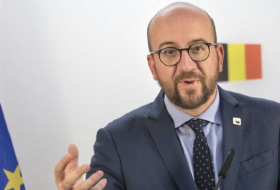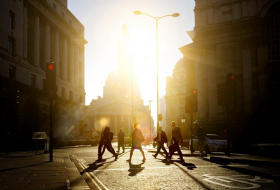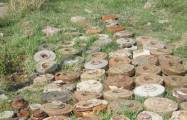The broken line snakes back 8 miles (13 km) to the border crossing at Paraguachon, where more than a hundred Venezuelans wait in the heat outside the migration office.
Money changers sit at tables stacked with wads of Venezuelan currency, made nearly worthless by hyperinflation under President Nicolas Maduro’s socialist government.
The remote outpost on the arid La Guajira peninsula on Colombia’s Caribbean coast marks a frontline in Latin America’s worst humanitarian crisis.
The Venezuelans arrive hungry, thirsty and tired, often unsure where they will spend the night, but relieved to have escaped the calamitous situation in their homeland.
They are among more than half a million Venezuelans who have fled to Colombia, many illegally, hoping to escape grinding poverty, rising violence and shortages of food and medicine in their once-prosperous, oil exporting nation.
“It’s migrate and give it a try or die of hunger there. Those are the only two options,” said Yeraldine Murillo, 27, who left her six-year-old son behind in the Venezuelan city of Maracaibo, some 56 miles (90 km) across the border.
“There, people eat from the trash. Here, people are happy just to eat,” said Murillo, who hopes to find work in Colombia’s capital Bogota and send for her son.
The exodus from Venezuela - on a scale echoing the departure of Myanmar’s Rohingya people to Bangladesh - is stirring alarm in Colombia. A weary migration official said as many as 2,000 Venezuelans enter Colombia legally through Paraguachon each day, up from around 1,200 late last year.
Under pressure from overcrowded frontier towns such as Maicao, Colombian President Juan Manuel Santos announced a tightening of border controls this month, deploying 3,000 additional security personnel.
But the measures are unlikely to stem the flow of illegal migrants pouring across the 1,379-mile (2,219 km) frontier.
At Paraguachon, where a lack of effective border controls has long allowed smuggling to thrive, officials estimate 4,000 people cross illegally daily.
“We left houses, cars. We left everything: money in the bank,” said former electronics salesman Rudy Ferrer, 51, who sleeps outside a warehouse in Maicao. He estimates there are 1,000 Venezuelans sleeping on the town’s streets every night.
‘THE MADURO DIET’
Some 3 million Venezuelans - or a tenth of the population - have left Venezuelan since late Venezuelan leader Hugo Chavez started his Socialist revolution in 1999.
Despite four months of violent anti-government protests last year, Chavez’s hand-picked successor Maduro is expected to win a fresh six-year term at elections on April 22. The opposition, whose most popular leaders have been banned from running, is boycotting the vote.
Mechanic Luis Arellano and his children were among the lucky ones who found beds at a shelter in Maicao run by the Catholic diocese with help from the U.N. refugee agency. The 58-year-old said his children’s tears of hunger drove him to flee Venezuela.
“It was 8 p.m. and they were asking for lunch and dinner and I had nothing to give them,” he said, spooning rice into his 7-year-old daughter’s mouth.
“This isn’t the size they should be,” Arellano said, raising his children’s spindly arms.
Migrants told Reuters they were paying up to 400,000 bolivars for a kilo of rice in Venezuela. The official monthly minimum wage is 248,510 bolivares - around $8 at the official exchange rate, or $1.09 on the black market.
REUTERS
More about: Venezuela
















































